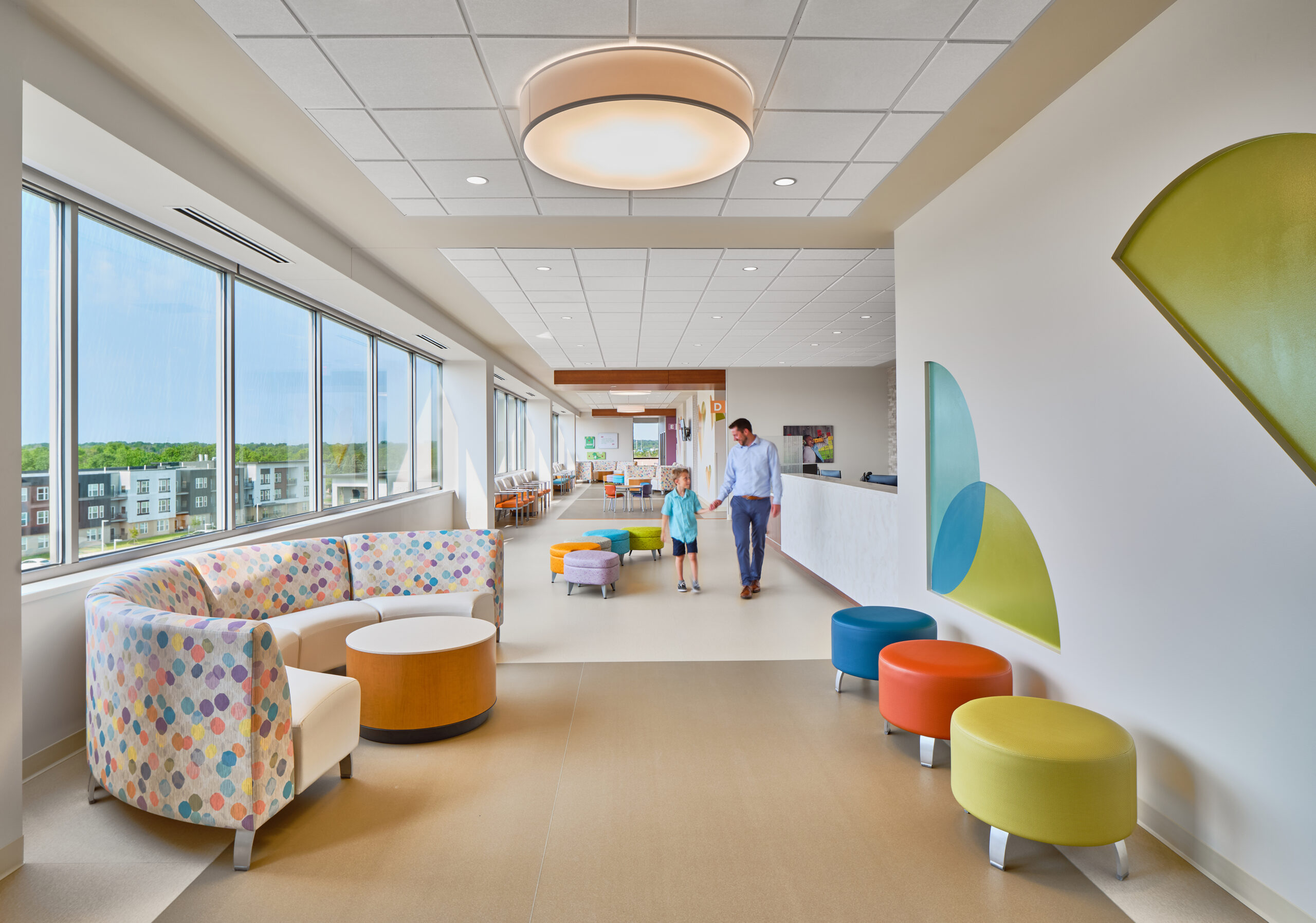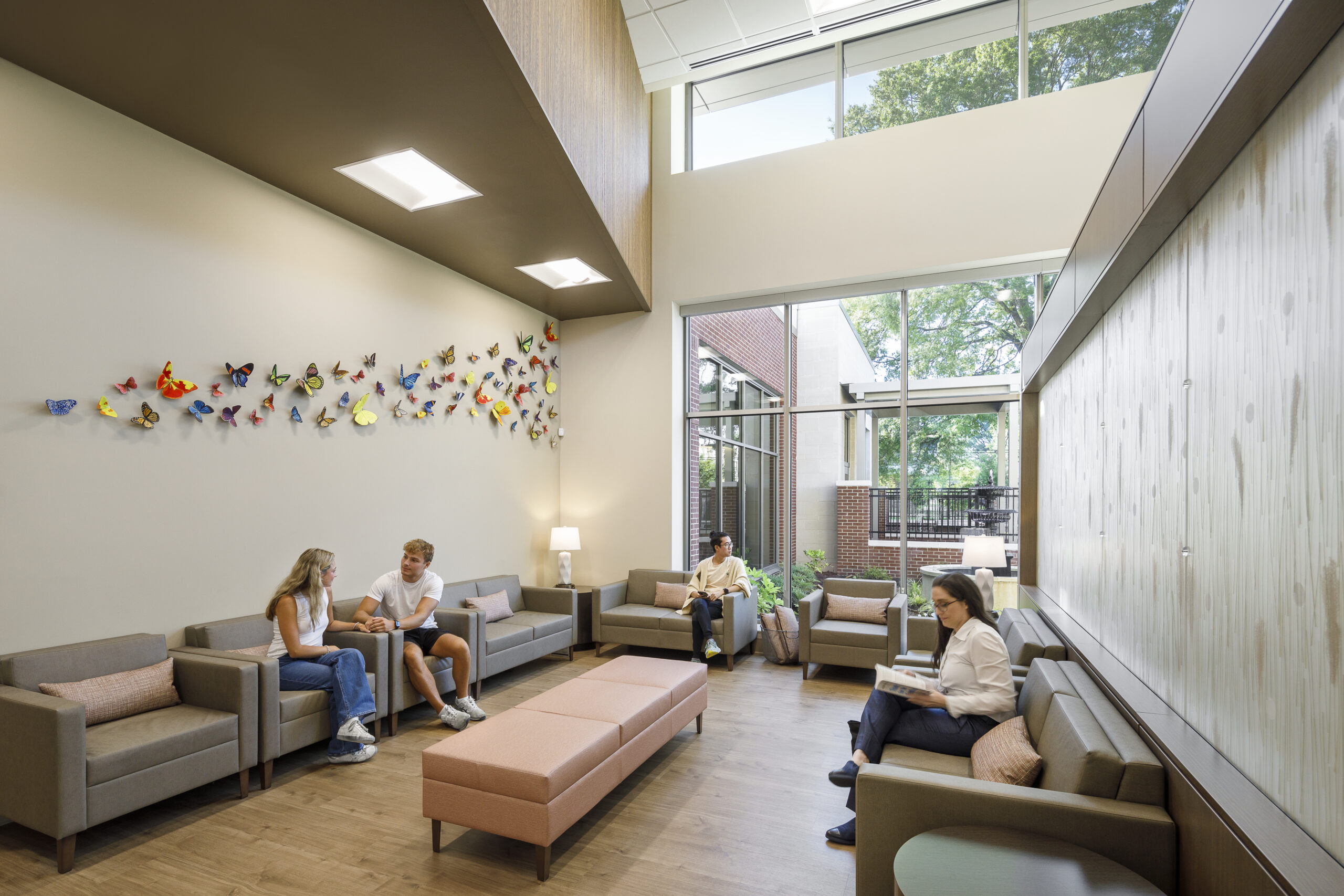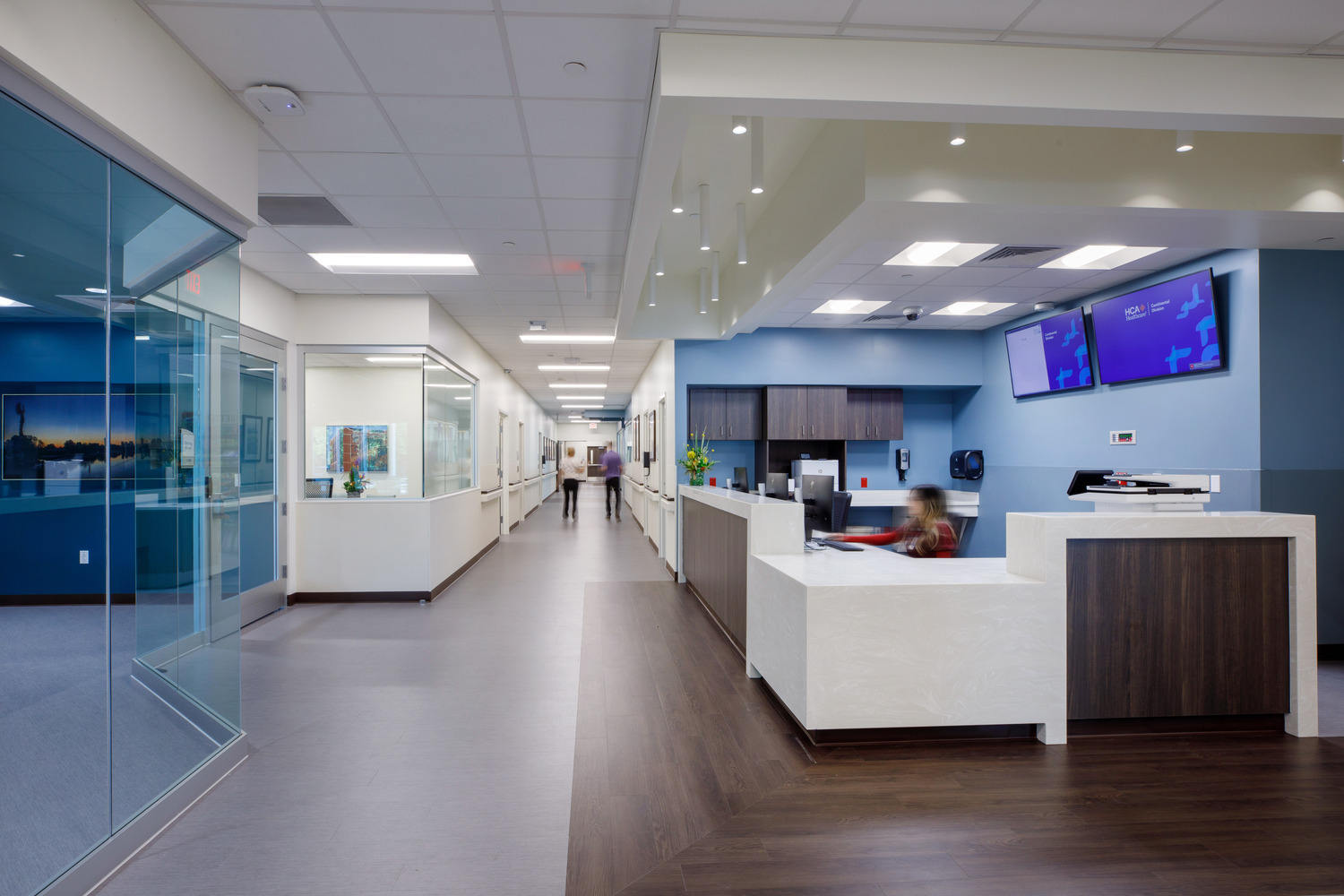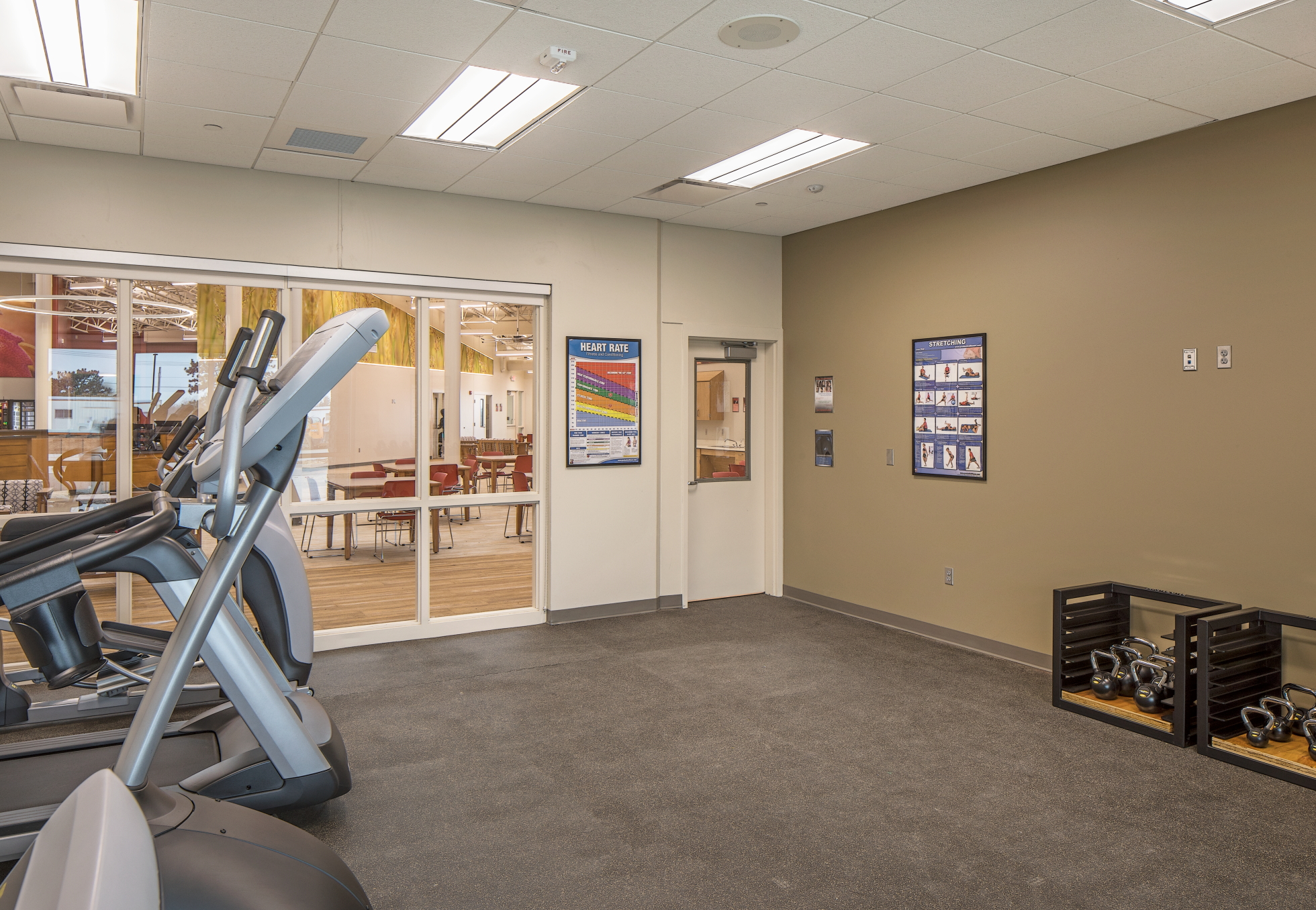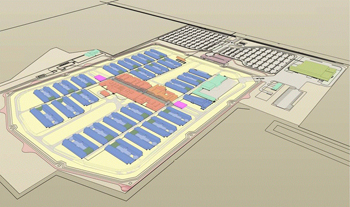 STOCKTON, Calif. — Construction is progressing on schedule at the site of a new medical and mental health care facility for inmates in the California state prison system. The California Health Care Facility (CHCF) in Stockton, Calif. will be a 1.2-million-square-foot intermediate-level facility with 1,722 beds on a 400-acre site. The price tag for the facility is projected at between $700 million and $750 million when all is said and done.
STOCKTON, Calif. — Construction is progressing on schedule at the site of a new medical and mental health care facility for inmates in the California state prison system. The California Health Care Facility (CHCF) in Stockton, Calif. will be a 1.2-million-square-foot intermediate-level facility with 1,722 beds on a 400-acre site. The price tag for the facility is projected at between $700 million and $750 million when all is said and done.
The project consists of two design-build packages. The first package was awarded to a joint venture of Granite Construction, out of Watsonville, Calif., and Hensel Phelps, from Greeley, Colo., with HOK Architects. That package includes off-site work on utilities and roads, site work, secure fencing around the perimeter with guard towers, the site entrance and a guardhouse, along with several structures. The buildings in that package include a telecommunications center with a lock shop, a central utilities plant, a warehouse and distribution infrastructure, parking and miscellaneous non-secure buildings. This package is about 50 percent complete at this time.
The second package was awarded to Clark and McCarthy JV, a joint venture between Clark Construction of Bethesda, Md. and McCarthy Construction, out of St. Louis, with HDR Architects, from Omaha, Neb. The second package includes inmate housing, a central kitchen, building maintenance facilities, a support services building with a diagnostics and treatment center, general visiting, and various administrative and support spaces. The second package is approximately one-third complete.
A separate project is being prepared on the same site. The DeWitt Nelson Conversion Project involves the renovation and expansion of the former DeWitt Nelson Youth Correctional Facility, which will be repurposed as an adult health care institution. This project has yet to be awarded. This project is expected to take the total construction cost up to $900 million.
The CHCF will be surrounded by a 13-foot-tall lethal electrified fence, with 24-hour patrol and 11 45-foot-tall guard towers. The vehicle inspection point will be incorporated directly into the fencing.
The Sacramento Regional Research Institute (SRRI) conducted an economic impact study on the facility, determining it would generate approximately $1 billion for the local economy from the construction process alone. The SRRI is a joint venture between California State University, Sacramento, the city of Sacramento and SACTO, an economic development organization. The organization was formed in 2001 to conduct research on economic development and also conducts an internship program to get students real world research work experience.
The report indicated 5,500 regional jobs would be created by the construction project, with up to 1,700 construction workers on-site on any given day. It added that $200 million would go into the local economy each year as a result of the salaries and benefits earned by the employees at the facility. More than half of the subcontractors and labor are from the local area and a large amount of the funding is intended to be spent within 50 miles of the project site. These measures were secured by a legal settlement won by the Greater Stockton Chamber of Commerce, the city of Stockton and San Joaquin County government, who sued the state to ensure the project funding went to as many local companies as possible.
The first inmate patient is scheduled to arrive in July 2013 and the facility will be fully operational by 2014.


